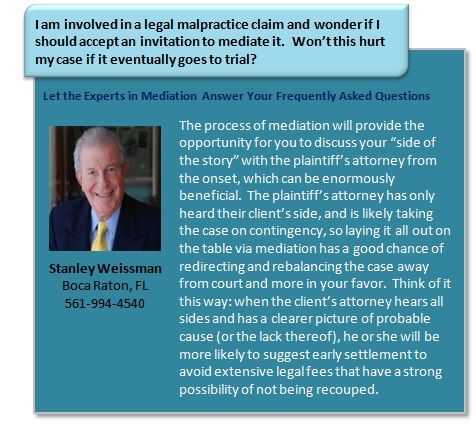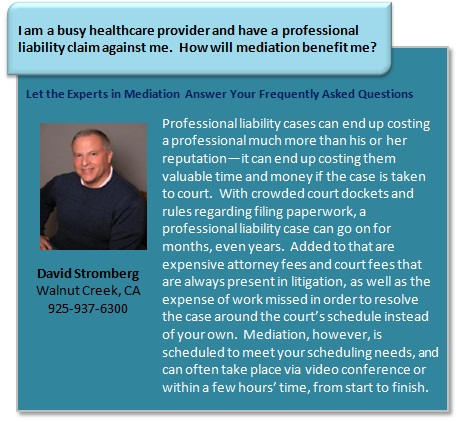
Image courtesy of Ambro / freedigitalphotos.net
Liability and negligence claims against members of certain professions—such as law, healthcare, education, engineering, and accounting—are often perfect candidates for professional liability mediation. There are several reasons for this. First, any claims involving insurance companies present their own unique problems. Insurance companies will often pay a maximum set limit that can be quickly eaten away by the exorbitant costs of litigation.
Second, cases involving professional liability or claims of professional negligence can be extremely detrimental to an individual’s professional reputation, as well as the reputation of the company they work for. For this reason, professional liability mediation becomes a much more attractive dispute resolution process due to its confidential nature. In mediation, only the parties in conflict (and at times, their attorneys) will hear the details—all of which will be kept out of prying public eyes.
Third, professional liability cases can end up costing a professional much more than his or her reputation—it can end up costing them valuable time and money if the case is taken to court. With crowded court dockets and rules regarding filing paperwork, a professional liability case can go on for months, even years. Added to that are expensive attorney fees and court fees that are always present in litigation, as well as the expense of work missed in order to resolve the case around the court’s schedule instead of your own. Mediation, however, is scheduled to meet your scheduling needs, and can often take place via video conference or within a few hours’ time, from start to finish.
Finally, anyone who has ever been involved with professional liability claims and disputes will agree that these types of disputes are best handled quickly, saving the professional’s reputation and company’s image from any additional fallout. Businesses spend a lot of time, money and energy building their reputation and brand image—both of which can be absolutely destroyed by litigation and professional liability disputes that become public knowledge. Mediation is a quick alternative resolution process that remains entirely within the control of the disputants, who can choose to resolve the issue as quickly as possible.







